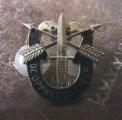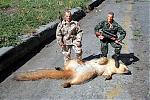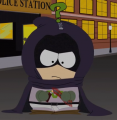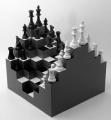Carl,
Some very good questions. To the first, I would say the regime elite absolutely knows the reality of the north's relative power which is why they feel they absolutely have to have nuclear weapons. I do not think they are under any illusions that they cannot complete head to head with any country. But I also think that they can execute a strategy of perceived strength from a position of weakness. We usually interpret Juche as self reliance and we laugh at that because the north has never been and never will be self- reliant under their current economic and political system. But as a Korean scholar pointed out just the other day at a conference, Juche is really about being in control and controlling your destiny and that is how the regime leadership feels. They believe they can play all sides against the other and manipulate the situation to their benefit. I am sure one of the things that Kim Jong-un has studied in detail is how his grandfather manipulated Stalin and Mao and support for north Korea in the Korean War (and then in the late 1950's purged all the north Koreans who had made the Long March with Mao - and that is the last time China ever really attempted to intervene significantly in the north internal affairs) and how Kim Jong-il has manipulated the 5 parties in the 6 party talks.
The second question is one that requires further analysis and assessment based on Kim Jong-un taking over. One of the lines of thinking was if Kim Jong-il (if it was even possible but assume it was) sought some kind of political asylum it would cause two things - it might be able to be exploited as a way to illustrate the illegitimacy of the regime by showing the Kim Family is no longer infallible and that it has abandoned the country. But some speculate it could have the alternate effect - either it would not be believed, or it would be believed that he was removed under duress but regardless of which, it could on the one hand harden the resolve of some segments of the population while on the other, it would be extremely psychologically and emotionally damaging to many in the population who once were "true believers." Although it is an extreme example we should remember that the Kim Family Regime has been deified and raised to a religious stature (remember that everyone has to pledge personal loyalty to the leadership and not to the nation or a constitution or even the party - we should also recall that north Korea is the only country of the world that is a necrotocracy - it is ruled by dead people - Kim Il sung is still the supreme leader even in mortal death - Kim Jong-il did not assume any of his father's titles and in his death his son has not assumed any of his father's titles - each creates new titles while preserving the previous father's titles, but I digress). So if the regime was to bolt the country it is difficult to say how the people will react. I think it would end up causing a lot of problems and different ones among many different people in many segments of society. With Kim Jong-un in power now, things have changed again. One of the things that some scholars speculate and it seems to be born out in the press is that Kim Jong-un has embarked on what they are beginning to call "Image Politics" which is a combination of tying him to his very charismatic grandfather who is still revered as the Great Leader and introducing the people to western images which makes Kim Jong-un seem to be cosmopolitan and a man of the world who knows how to operate in the modern world (a fiction of course but it might play to the internal audience). But if he becomes as revered as his grandfather we might wish for Kim Jong-il to still be alive because he was not and never will be loved as Kim Il-sung was. Which brings us to an important question, what happens at the end of the regime? To borrow from Linda Robinson's book "Tell me how this ends," how does the end of the regime come about. If Kim Jong-un was to go away, the various scenarios under which that might happen could have very different effects on the population and military. If he was killed as a result of military action (even if the north initiated hostilities) he could be idolized as a martyr. Of course if he was killed in some kind of internal coup - the ROK could or would likely be blamed and he could also be made a martyr. Regardless the end of the regime is going to cause tremendous internal problems within north Korea and the effects cannot be predicted with any certainty. That said, the ROK should be preparing for that eventuality now. There are many things that should be done from a policy perspective (and the majority of them are non-military) to try to inform and influence the population so that the effects of the end of the regime can be mitigated to the extent they can be. But that is the subject of a lot of ongoing research now. So I will stop here and look forward to continuing the exchange of ideas.














Bookmarks